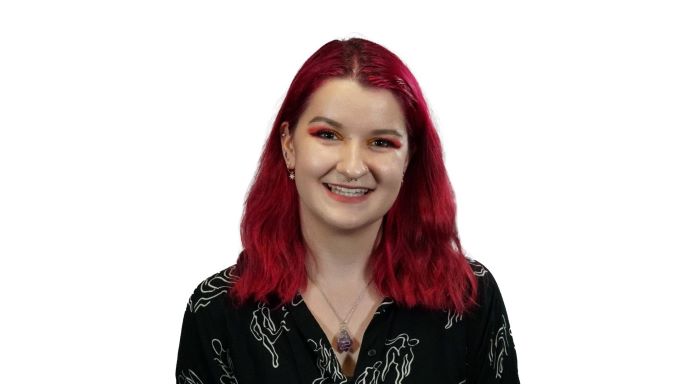
My name is Deni and I’m a final year physics student, and a Students’ Union Part Time Officer on the Voice Zone. In this role, I have been working on a campaign for Neurodiversity Celebration Week in order to raise awareness for neurodivergent conditions and the support available.
As part of this campaign I organised an event in the MySurrey Hive on Tuesday 14th March 1-4pm, with a Disability and Neurodiversity service pop-up, craft activities to get involved in, and fidget toys to give away.
The Stag Magazine are hosting “Feel Good – Inclusive Silent Disco” in the Basement on Thursday 16th March from 7pm, with tickets available on tixtu. They will also be posting articles relating to neurodiversity and are keen to accept submissions from anyone who would like to share their experiences.
Neurodiversity Celebration Week was founded in 2018 to celebrate the strengths and talents of neurodivergent people and to recognise that all humans are different, with unique minds, needs and abilities. Neurodivergence refers to differences in the way some brains process information, behave and learn, when compared to what is considered “neurotypical”. Conditions generally included under the umbrella of neurodivergence include autism, ADHD, dyslexia, dyscalculia, dysgraphia, dyspraxia, tourette syndrome, OCD, and others.
The neurodiversity movement represents a shift in attitudes and understanding of these conditions or differences, seeing them as intrinsic to the individual, and not something to be cured or suppressed. The history of neurodiversity and the treatment of neurodivergent people is a difficult one (which is why I warn in my reading list that NeuroTribes by Steve Silberman, which delves into some of this history, is not a light read). This history has left behind stigma, misinformation, and barriers to support for neurodivergent people, which is part of why it is so important to celebrate neurodiversity in our communities, workplaces, and in society as a whole.
My interest in the topic stemmed from my personal experience. After struggling with my mental health since secondary school and feeling supremely burnt out after working full time for a few years before beginning my degree, I started to learn more and more about neurodiversity during my first year at university and the pandemic. I was convinced that my diagnosis of “mixed anxiety and depressive disorder” was not the full picture, and I began a very long process of researching different symptoms, conditions, and diagnoses in a desperate attempt to understand why I was the way I was.
Like many others, the lockdowns of 2020 and 2021 suddenly disrupted my routines, distractions and coping mechanisms. This, alongside other factors in my life, meant that I was forced to confront the fact that there was something different about the way my brain worked, and I had been trying to squeeze it into a box that it just didn’t function in.
To avoid getting into the nitty gritty of my personal history, neurodivergent traits, and the specific diagnostic criteria for every neurodivergent condition under the sun, I’ll cut a long story short here and say that I was diagnosed with ADHD (combined type) in February 2022 and am currently on a waiting list, awaiting assessment for ASD. (A side note on waiting lists and assessments – autism and ADHD assessments were debated in Parliament on 6th February 2023 as a result of online petitions and unreasonably long waiting lists. Information about this debate can be found here: https://ukparliament.shorthandstories.com/adhd-and-autism-assessments/index.html and shows that campaigning and advocacy can have an impact. We can only hope that this will lead to real tangible improvements in these areas!)
I have found it extremely helpful to understand myself and my experiences through the lens of neurodivergence. It has allowed me to better understand my needs, my strengths, and my capacity, allowing me to treat myself with more kindness and understanding. It has allowed me to connect with others with similar experiences, to foster a sense of community and to learn about the diversity of the human experience.
I have found it so enriching to read about and identify with books and media surrounding this topic, and my hope is that someone feeling lost and confused will be able to identify parts of themselves in these explorations of the neurodivergent experience.
View Deni’s Student Curator reading list for Neurodiversity Celebration Week 2023 to learn more!
[Photo portrait of Deni Addis, smiling looking at the camera, wearing scarlet eye shadow which matches her hair]
#SurreyLib #UniversityOfSurrey #SurreyUni #NeurodiversityCelebrationWeek2023
